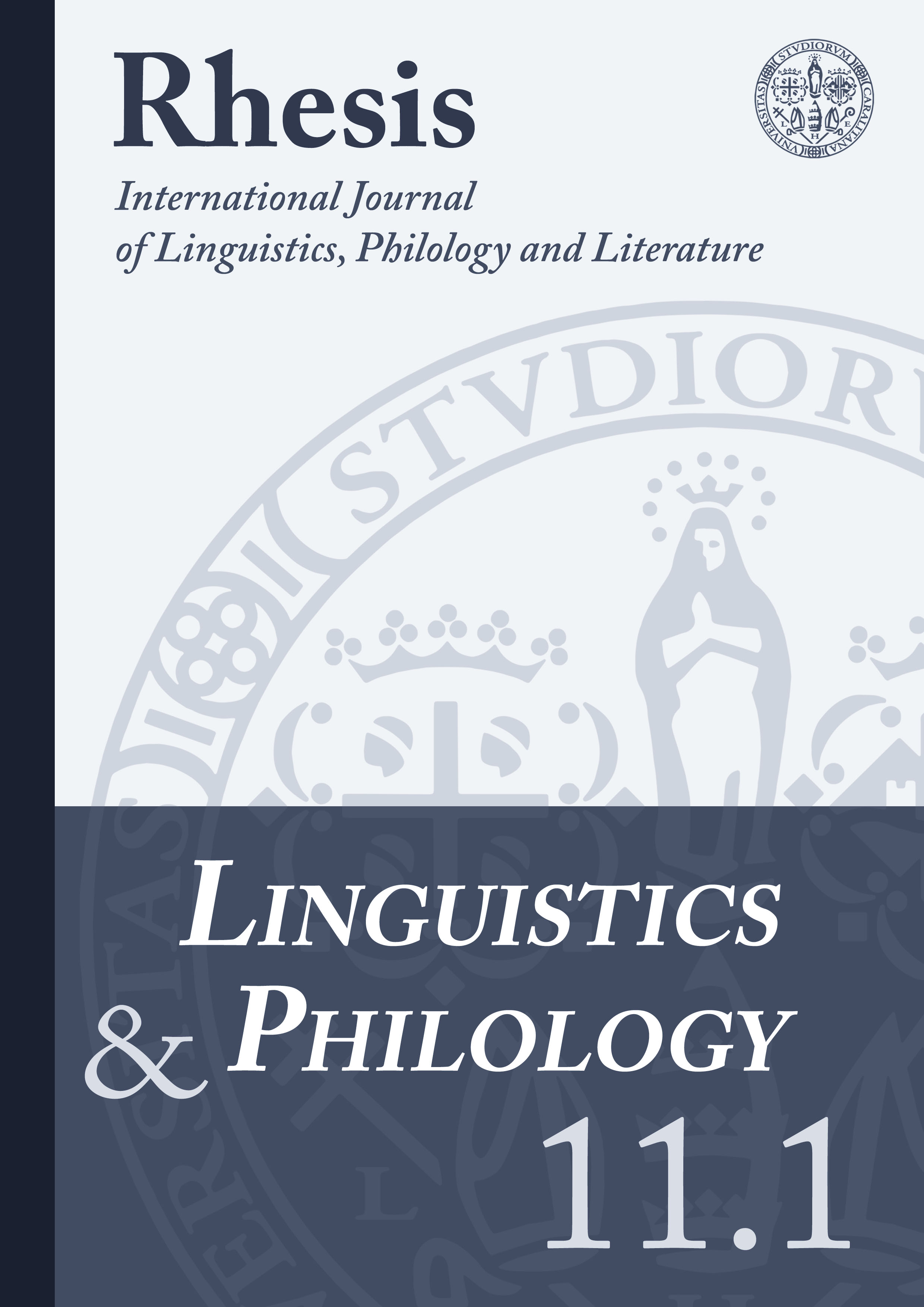I discorsi di Mandodarī e Draupadī: locuzioni retoriche a confronto
Abstract
Nell’epica indiana l’arte oratoria è tenuta in grande considerazione ed è propria di figure maschili di rilievo. Al centro del presente articolo sono Draupadī e Mandodarī, accomunate dall’essere votate alla fedeltà e devozione al loro sposo (pativratā), ma distinte dall’essere legate l’una a un eroe vincitore e l’altra a un antieroe. Entrambe sono attrici principali di un episodio d’intenso pathos narrativo, quando esortano e/o rimproverano i rispettivi coniugi sull’agire (o non agire) in un determinato modo (MBh 3.28-33; R [G] 6.33; R [B] 6.99). Alcuni versi del Rāmāyaṇa in cui Mandodarī redarguisce Rāvaṇa ormai morto, espunti dall’edizione Baroda ma in parte conservati in Gorresio, si sono rivelati utilmente confrontabili con il discorso che Draupadī rivolge a Yudhiṣṭhira nel terzo libro del Mahābhārata. Poiché non è noto alcun tentativo di condurre un’analisi contrastiva della dialettica delle due protagoniste e, in particolare, dei passi selezionati, oggetto della presente ricerca sarà un’analisi di alcune strategie retorico-stilistiche adottate nella rappresentazione letteraria di Mandodarī e Draupadī.
Downloads
Riferimenti bibliografici
Bailey, Gregor (1983b), The Mythology of Brahmā, Delhi, Oxford University Press.
Bhatt, Govindlal H.; Vaidya, Lakshman P.; Divanji, Prahlad C.; Mankad, Dolarray R.; Jhala, Gowriprasad C.; Shah Umakant P. (eds.) (1971), The Vālmīki-Rāmāyaṇa: The National Epic of India, 6, Baroda, Oriental Institute.
Biardeau, Madeleine (2002), Le Mahābhārata: Un récit fondateur du brahmanisme et son interprétation, Paris, Seuil.
Black, Brian (2013), ‘Draupadī in the Mahābhārata’, Religion Compass 7 (5), 169-178.
Brockington, John; Brockington, Mary (eds.) (2016), The Other Rāmāyaṇa Women. Regional Rejection and Response, Oxon-New York, Routledge.
Brodbeck, Simon; Black, Brian (2007), ‘Introduction’, in Brodbeck, Simon; Black, Brian (eds.), Epic Constructions: Gender and Narrative in the Mahābhārata, London, Routledge, 1-34.
Dhand, Arti (2008), Woman as Fire, Woman as Sage. Sexual Ideology in the Mahābhārata, Albany, State University of New York Press.
Goldman, Robert P.; Sutherland Goldman, Sally J.; Nooten, Barend A. van (eds.) (2010), The Rāmāyaṇa of Vālmīki. An epic of Ancient India. Yuddhakāṇḍa, 6.1-2, Delhi, Motilal Banarsidass Publishers.
Gorresio, Gaspare (1843-1858), Ramayana: poema indiano, 1-10, Parigi, Dalla stamperia Reale di Francia.
Hara, Minoru (1978), ‘Tapasvinī’, Annals of the Bhandarkar Oriental Research Institute 58-59, 151-159.
Hiltebeitel, Alf (2011), Dharma: Its Early History in Law, Religion, and Narrative, Oxford, Oxford University Press.
Jamison, Stephanie (1996), Sacrificed Wife, Sacrificer’s Wife: Women, Ritual, and Hospitality in Ancient India, New York, Oxford University Press.
Malinar, Angelika (2007), ‘Arguments of a Queen: Draupadī’s Views on Kingship’, in Black, Brian; Brodbeck, Simon (eds.), Epic Constructions: Gender and Narrative in the Mahābhārata, London, Routledge, 79-96.
Mocci, Davide; Pontillo, Tiziana (2019), ‘Predication in Aṣṭādhyāyī 2.1.56. Syntactic Analysis of a karmadhāraya compound’, Aevum 93 (1), 3-38.
Pontillo, Tiziana (2018), ‘VI. Yuddhakāṇḍa’, in Sani, Saverio; Della Casa, Carlo; Mazzarino, Vincenzina; Pellegrini, Agata; Pontillo, Tiziana (eds.), Rāmāyaṇa. Il grande poema epico della mitologia indiana. Introduzione di John Brockington. Yuddhakāṇḍa, Uttarakāṇḍa (e Glossario), 3, Udine, Mimesis, 13-358.
Shah, Shalini (2012), ‘On Gender, Wives and Pativratās’, Social Scientist 40 (5-6), 77-90.
Sukthankar, Vishnu S.; Belvalkar S. K. (1933-1970), The Mahabharata, 1-19, Poona, Bhandarkar Oriental Research Institute (BORI).



